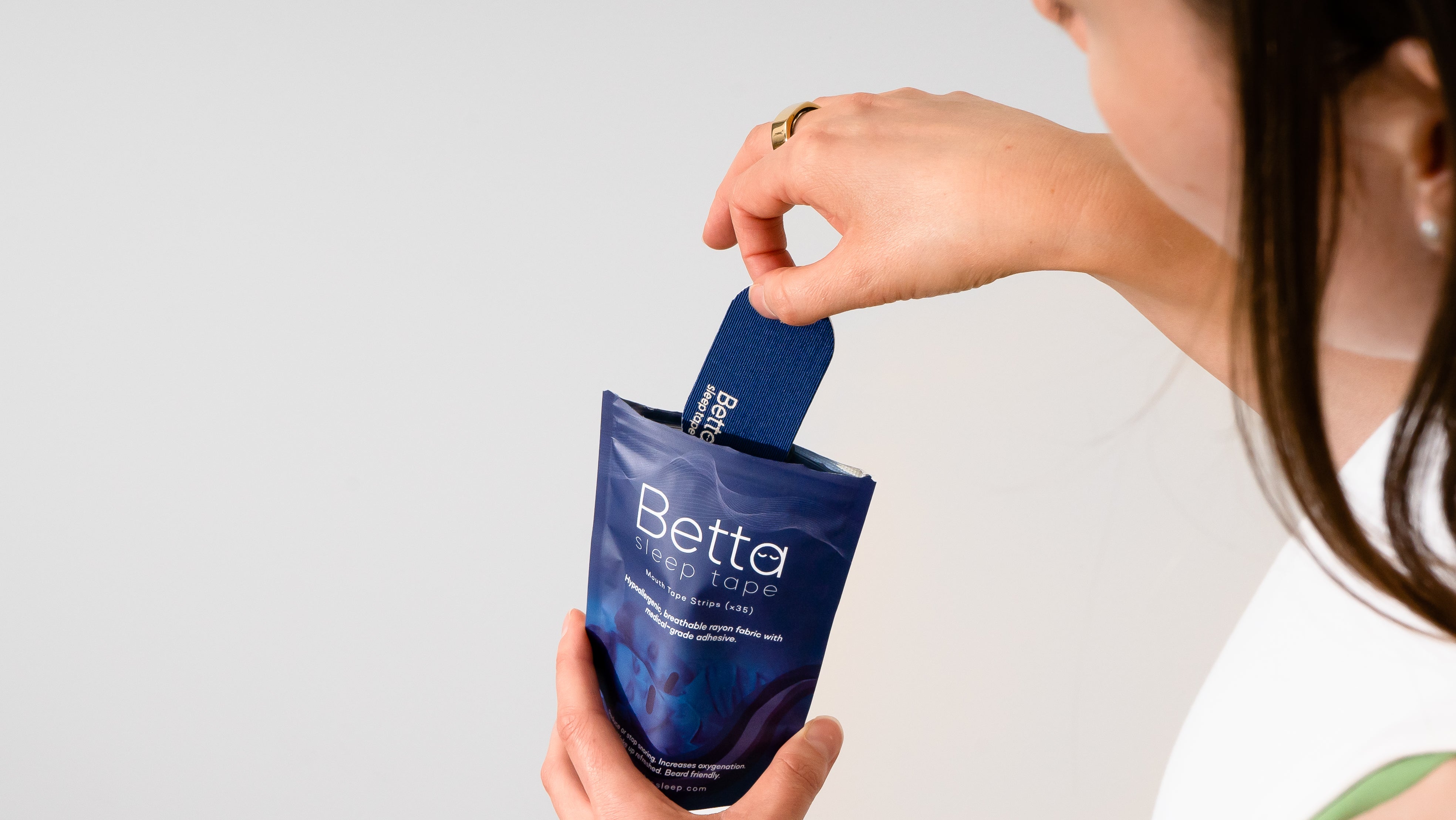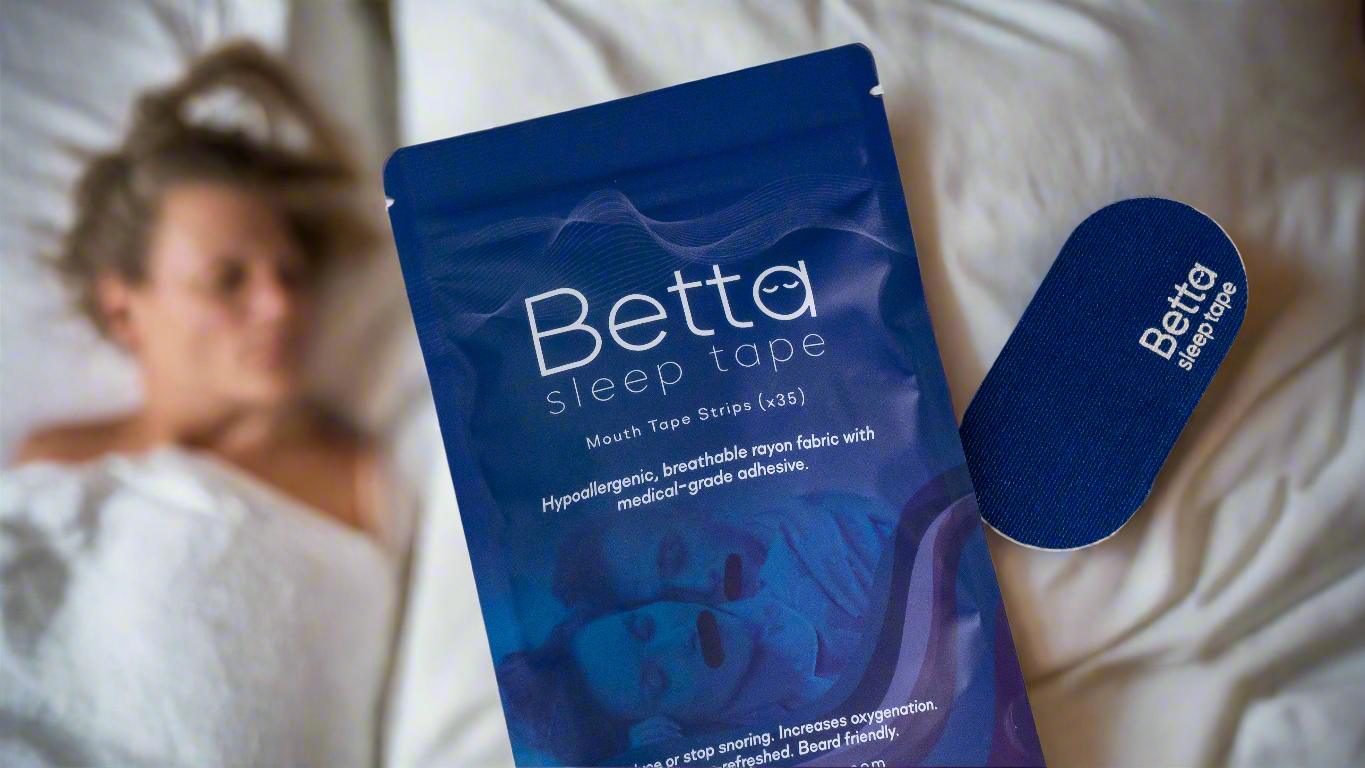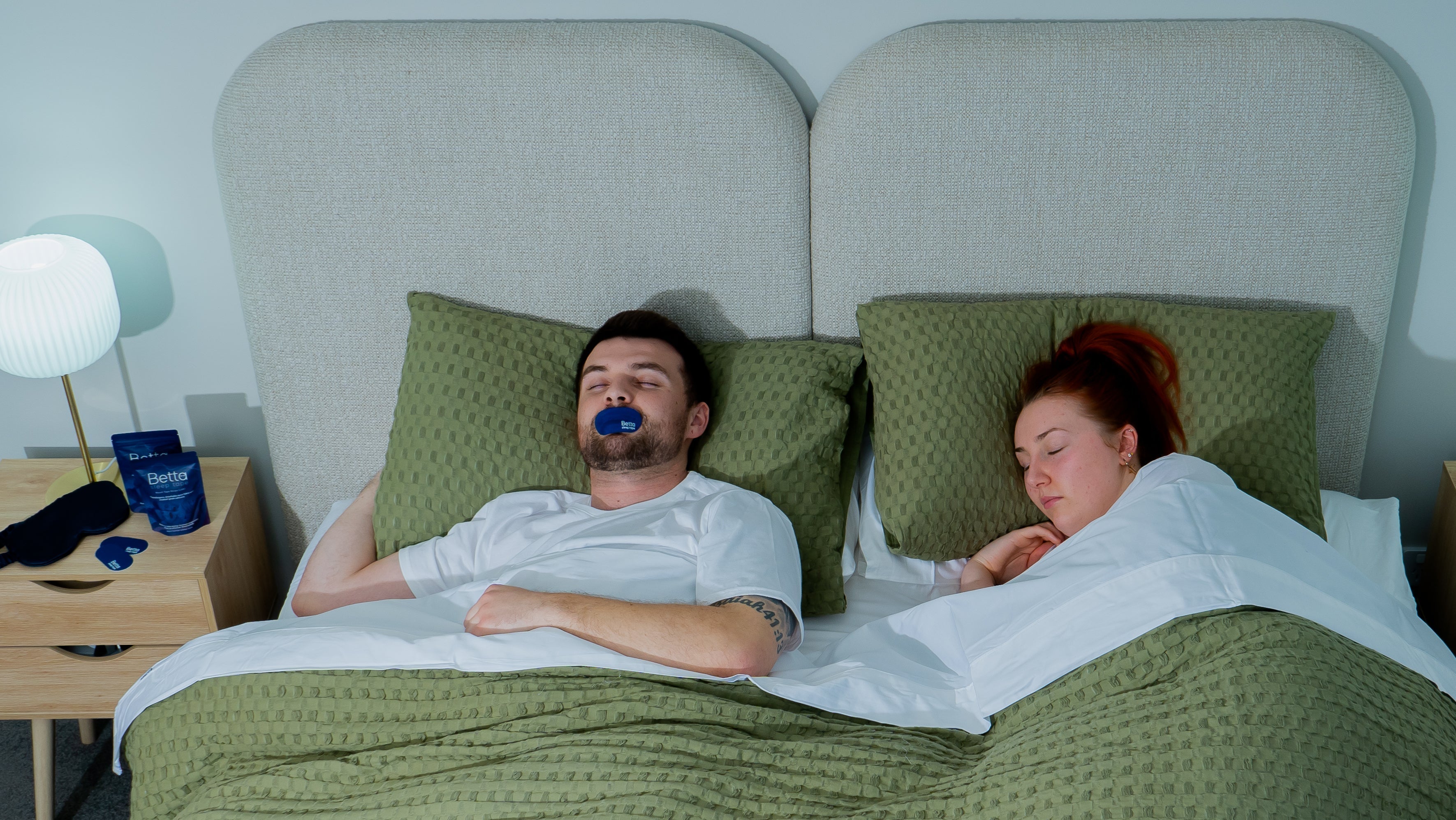
The Science Behind Mouth Taping: An Introduction
Know someone who needs to keep their mouth shut? Turns out that someone is all of us — and mouth tape is here to help.
Popularised by James Nestor’s best-selling book Breath (and later TikTok), mouth taping isn’t just a trend. It’s a method of encouraging nasal breathing by gently sealing the mouth during sleep.
Nasal breathing has been proven to capture up to 18% more oxygen per breath, resulting in more efficient CO₂ exchange and better filtration of airborne pathogens. This blog explores how mouth taping works, whether it’s safe, and whether the benefits are backed by science — or just hype.
The What: Mouth Tape Unveiled
Let’s start with the basics. Mouth tape is a simple but effective tool designed to keep your mouth closed while you sleep. Usually made from hypoallergenic adhesive, it promotes natural nasal breathing — unlocking a range of health benefits.
Benefits of nasal breathing include:
- Lowers blood pressure
- Filters allergens and pollutants
- Reduces anxiety
- Improves CO₂ exchange
Nasal breathing not only improves oxygenation and overall vitality, it also helps prevent the side effects of chronic mouth breathing.
The Problem Mouth Tape Solves
“Why tape my mouth shut?” you might ask. Because many of us unconsciously mouth-breathe during sleep — a habit linked to a wide range of health issues.
1. Reduced Oxygen Efficiency
Nasal breathing filters, humidifies, and conditions air before it reaches the lungs — improving oxygen and CO₂ exchange. Mouth breathing bypasses this, reducing energy and overall vitality.
2. Snoring and Sleep Apnea
Mouth breathing is a major cause of snoring and contributes to sleep apnea — a disorder marked by interrupted breathing during sleep.
3. Impact on CPAP Therapy
For CPAP users, mouth breathing allows air to escape, weakening treatment and making sleep apnea harder to manage.
The Benefits of Nose Breathing
1. Improved Oxygenation
Nasal breathing enhances oxygen intake, supporting energy, recovery, and cognitive function.
2. Cardiovascular Health
Proper nasal breathing helps regulate blood pressure and supports long-term heart health.
3. Mental Clarity
A well-oxygenated brain improves focus, memory, and decision-making.
4. Snore-Free Sleep
Keeping your mouth closed helps eliminate snoring, improving sleep for both you and your partner.
5. CPAP Compatibility
Nasal breathing enhances the effectiveness of CPAP machines, ensuring proper pressure and airway support.
Final Thoughts
Mouth breathing during sleep isn't just a habit — it can undermine your health in surprising ways. From poor sleep quality to cardiovascular strain, the effects are real. Mouth taping offers a simple, low-cost way to retrain your body for nasal breathing and enjoy better rest, energy, and health.

